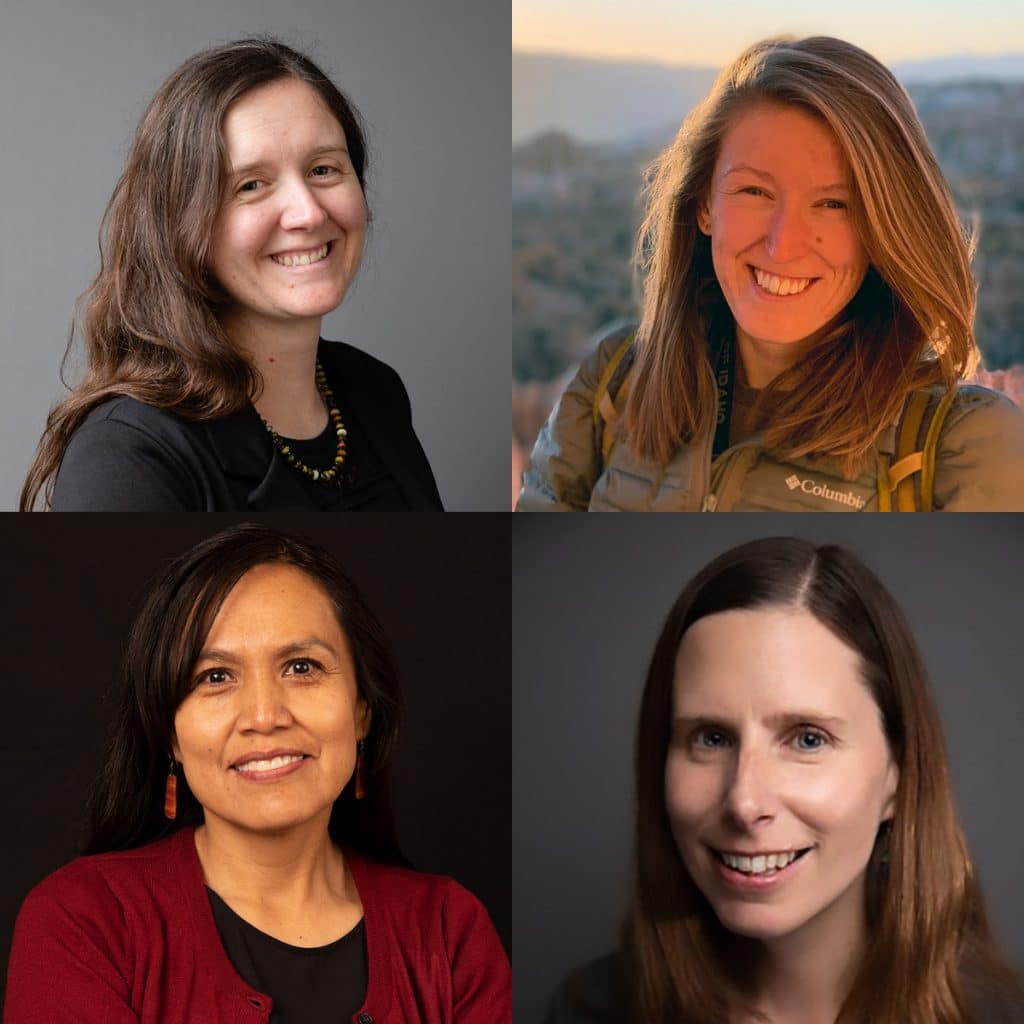Northern Arizona University’s Southwest Health Equity Research Collaborative (SHERC) awarded research grants through its Pilot Project Program totaling $240,000 to four NAU faculty investigators conducting health equity research in the local community.
This year’s award recipients are Emery Eaves, assistant professor in the Department of Anthropology, Catrin Edgeley, assistant professor in the School of Forestry, Regina Eddie, assistant professor in the School of Nursing and Olivia Lindly, assistant professor in the Department of Health Sciences.
The Investigator Development Core (IDC) of SHERC funded the four new pilot projects during the fourth annual cycle of its five-year grant. The IDC currently supports 13 pilot projects totaling $720,000 in funding for health equity research areas. In total, the SHERC Investigator Development Core has supported 16 pilot projects—including three that have already ended—across different fields that are all related to improving health equity.
The purpose of the Pilot Project Program is to provide preliminary seed funding to support and mentor junior investigators with projects that address diseases that disproportionately impact populations vulnerable to health disparities as well as projects that lead to development and support of sustainable relationships with community-based partners.
The support also increases their competitiveness for funding from the National Institutes of Health (NIH) and other external health and health equity-related organizations.
Anna Schwartz, professor and associate director of research for the NAU School of Nursing, is the lead of the IDC.
“We are excited to welcome our new cohort of investigators,” Schwartz said. “These four early career investigators are each conducting meaningful research that will make a tangible difference in the underserved communities they are focused on. The contributions that these researchers have made are significant, not only to SHERC, but also to the success and recognition of NAU as a top U.S. research institution.”
Eaves’ project, “Opioid Use Recovery Help in an Online User Support Environment (OUR HOUSE),” in collaboration with Eck Doerry, professor in NAU’s School of Informatics, Computing, and Cyber Systems, and Holly Williamson, clinical director of the National Council on Alcohol and Drug Dependence in Phoenix, will develop mHealth, a smartphone app that assists women transitioning out of comprehensive substance use treatment and housing programs.
Eaves and her co-investigators will conduct focus groups with women currently in treatment, interviews with women who have successfully transitioned out of treatment, align app features to their specific experiences and refine and pretest the mHealth app for feasibility and usability.
Edgeley’s project, “Developing a Methodology for Exploring Health Inequities Tied to Wildfire Smoke,” will examine how health inequities emerge within communities frequently affected by wildfire and prescribed fire smoke.
The researchers will collect data in three phases: a household survey of the study community to understand residents’ perceived influences on health equity; interviews with residents and professionals to identify smoke strategies that residents currently use; and focus groups with residents and professionals to identify feasible strategies during periods of low air quality.
Eddie’s project, “Examining School Wellness in Underserved American Indian Communities,” will explore how to better understand the quality and prevalence of current student nutrition policies and practices, physical activity and other wellness activities in Navajo Nation schools.
This study will create the first Navajo tribal-specific school wellness policy and practices data designed to inform future school-based interventions that can support and promote healthy student behaviors among Navajo and other American Indian children and adolescents.
Lindly’s project, “Parents Taking Action to Improve Autism Services Access for Navajo Families in Northern Arizona: Intervention Adaptation and Pilot Trial,” will conduct focus groups and interviews with Navajo parents or guardians of children with autism spectrum disorder (ASD) to understand their experiences raising children with ASD.
Lindly and her co-investigators, Davis Henderson, assistant professor in NAU’s Department of Communication Sciences and Disorders, and Kristina Lopez, assistant professor in the School of Social Work at Arizona State University, will adapt Parents Taking Action, an evidence-based intervention, for Navajo families of children with ASD in the first year.
SHERC is an NIH-funded cooperative agreement with the Center for Health Equity Research at Northern Arizona University. SHERC is supported by funding from the National Institute on Minority Health and Health Disparities of the NIH (U54MD012388).
Lisa Dahm | Center for Health Equity Research




